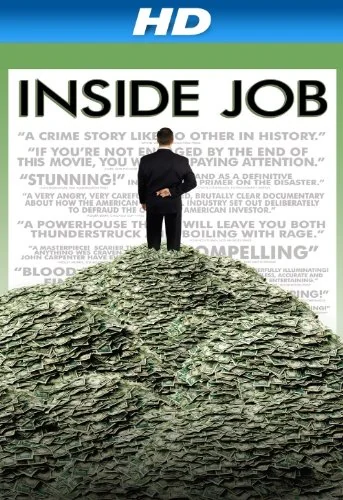🎯 Quick Overview
Trailer
- Director: Charles Ferguson
- Genre: Documentary, Crime, History
- Release year: 2010
- Runtime (length): 1h 49min
- IMDb rating: 8.2/10 (103k votes)
- Rotten Tomatoes: 86%
😅 Plot Summary – Badly Explained
Matt Damon explains how some rich guys played a very complex game of Monopoly, but forgot to pay attention and bankrupted everyone else.
🍿 Inside Job: Detailed Plot Synopsis
The Rise of Deregulation
The documentary starts by examining the increasing deregulation of the financial industry in the decades leading up to 2008. It highlights the repeal of the Glass-Steagall Act, which separated commercial and investment banks, and the Commodity Futures Modernization Act of 2000, which prevented the regulation of derivatives. This deregulation paved the way for excessive risk-taking and the creation of complex financial instruments. The film also explores the influence of the financial industry on politics and academia. It reveals how financial institutions lobbied for deregulation and how economists and academics received funding from the industry, creating a conflict of interest. This influence contributed to a lack of oversight and accountability, allowing the crisis to unfold.
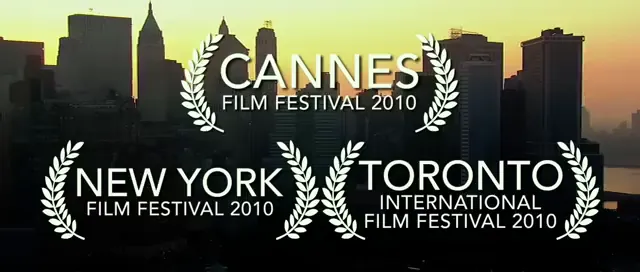
The Housing Bubble and Subprime Mortgages
Inside Job delves into the housing bubble and the rise of subprime mortgages. It explains how lenders offered mortgages to borrowers with poor credit histories, often with low initial interest rates that would later increase. These mortgages were then packaged into complex financial products called mortgage-backed securities (MBS) and sold to investors. The documentary exposes how credit rating agencies gave these MBS AAA ratings, even though they were based on risky mortgages. This misled investors into believing that these products were safe, leading to widespread investment and fueling the housing bubble. The film also touches on how the lenders did not care if the mortgages were repaid because they quickly sold them on to investment banks.
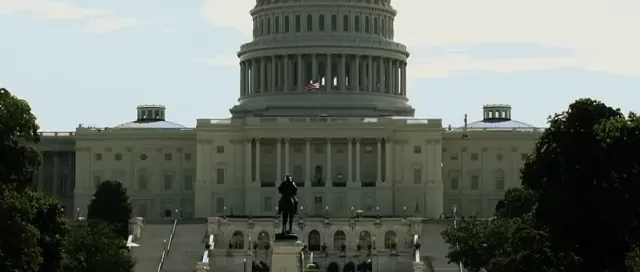
The Global Financial Crisis
The film then chronicles the events of the 2008 financial crisis. It shows how the collapse of the housing market led to massive losses for financial institutions that held MBS. This triggered a chain reaction that led to the failure of major investment banks like Lehman Brothers and the near-collapse of the global financial system. The documentary criticizes the government’s response to the crisis, including the bailout of banks deemed “too big to fail.” It argues that the bailout rewarded the institutions responsible for the crisis and did little to hold them accountable. The film also details the lack of criminal prosecutions against any major financial executives.
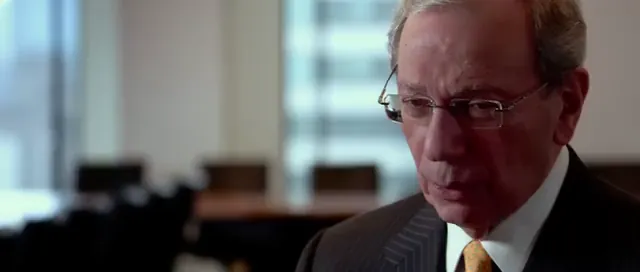
⚠️ Spoilers and Ending Explained
🎬 Cast & Characters
- Matt Damon (Matt Damon): The narrator who guides the audience through the complex web of events leading to the 2008 financial crisis.
- Charles Ferguson (Charles Ferguson): The director and interviewer who investigates the causes and consequences of the financial crisis.
- Alan Greenspan (Paul Volcker): The former Federal Reserve Chairman whose policies of deregulation contributed to the crisis.
- Dominique Strauss-Kahn (Dominique Strauss-Kahn): The former Managing Director of the International Monetary Fund who is interviewed about the global implications of the crisis.
- Barney Frank (Barney Frank): The Chairman of the Financial Services Committee who discusses the political aspects of the financial crisis and regulatory responses.
- Glenn Hubbard (R. Glenn Hubbard): The Dean of Columbia Business School who defends his consulting work with financial institutions, highlighting the conflicts of interest within academia.
- George Soros (George Soros): The Chairman of Soros Fund Management who provides insights into the role of hedge funds and financial speculation in the crisis.
💬 Memorable Quotes
- Andrew Sheng: “Why should a financial engineer be paid four times to 100 times more than a real engineer? A real engineer build bridges. A financial engineer build dreams. And, you know, when those dreams turn out to be nightmares, other people pay for it.” – This quote highlights the disparity in compensation between those who create tangible value and those who manipulate financial instruments.
- Matt Damon (Narrator): “The financial system corrupted our political system.” – This statement encapsulates the central argument of the film, asserting that undue influence from the financial sector led to the crisis.
- Matt Damon (Narrator): “Despite recent financial regulations, the underlying system has not changed; rather the remaining banks are only bigger, while all the incentives remain the same, and not a single top executive has been prosecuted for their role in the global financial meltdown.” – The narrator delivers this statement near the end of the documentary summarizing that the situation remains the same.
💰Box Office
- Budget: $2,000,000
- Domestic Gross: $4,312,735
- Worldwide Gross: $7,871,522
💥 Inside Job Reviews
Personal Review
I remember watching this movie and feeling a mix of anger and disbelief. It’s hard to believe how much reckless behavior went unpunished. What really struck me was the interviews with academics who seemed completely oblivious to their conflicts of interest; that awkward moment when someone is really being confronted. This movie is a must-see for anyone wanting to know who wrecked the economy and why nothing seems to have changed. It is definitely one that will stick with you.
- Who would enjoy:
- “People interested in economics and finance”
- “Viewers seeking to understand the 2008 financial crisis”
- “Those interested in documentaries exposing corporate and political corruption”
- Content warnings ⚠:
- “Discussions of complex financial concepts”
- “Depiction of greed and corruption”
- “Mature themes related to economic devastation”
- “Brief mention of substance abuse and prostitution”
Professional Reviews
- The New York Times: “A meticulously researched and devastatingly clear exposé of the 2008 financial crisis. ‘Inside Job’ is not just informative, it’s a call to action, revealing the systemic corruption that continues to plague our financial institutions.
- Rolling Stone: “Charles Ferguson’s ‘Inside Job’ is an infuriating and essential document of financial malfeasance. It’s a must-see for anyone who wants to understand the roots of the economic crisis and the lack of accountability for those responsible.
- Chicago Sun-Times: “With sharp precision, ‘Inside Job’ dissects the complex web of deregulation, greed, and conflicts of interest that led to the financial collapse. Ferguson’s interviews are probing and the film is a potent indictment of a system gone awry.
Audience Reactions
The clear explanation of complex financial instruments like CDOs and derivatives was incredibly helpful.: Most viewers appreciated how the movie made complicated financial topics understandable.
The interviews with key figures were shocking and highlighted the lack of accountability.: Many felt the interviews exposed the arrogance and ethical failings of those in power.
Overall Consensus: A powerful and informative documentary that exposes the root causes of the 2008 financial crisis, highlighting the greed, corruption, and lack of accountability within the financial industry and government.
Awards
- Academy Award (Best Documentary Feature)- 2011
🛠️ Behind the Scenes
- “Director Charles Ferguson funded the film himself after becoming frustrated with the lack of accountability following the 2008 financial crisis.”
- “Many prominent figures in the financial industry declined to be interviewed for the film. The film makes a point of noting each refusal on screen.”
- “The film’s opening sequence focuses on Iceland’s financial collapse as a microcosm of the larger global crisis, setting the stage for the issues explored in the rest of the documentary.”
- “The production involved extensive research into the complex financial instruments and practices that contributed to the crisis, including derivatives, CDOs, and credit default swaps.”
🖥️ How to Watch Inside Job?
Inside Job is a documentary that can be streamed or purchased on various platforms. Check streaming services such as Prime Video, Apple TV, and Google Play for rental or purchase options. Availability may vary by region. Some cable providers may also offer it on demand. Check JustWatch for up-to-date streaming and purchase links.
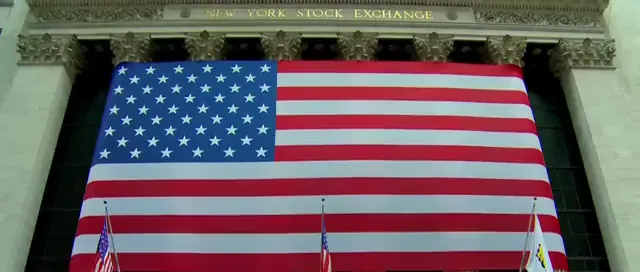
🎥 Similar Movies
If you enjoyed Inside Job, you might like these similar films:
- The Big Short (2015): Dramatizes the lead-up to the 2008 financial crisis through the stories of individuals who bet against the housing market.
- Too Big to Fail (2011): A dramatized account of the U.S. government’s efforts to prevent the collapse of the financial system during the 2008 crisis.
- Enron: The Smartest Guys in the Room (2005): Examines the rise and fall of Enron Corporation and the fraudulent practices that led to its downfall.
🛒 Inside Job Related Products
- The Big Short: Inside the Doomsday Machine: Michael Lewis’s gripping account of the few who saw the crisis coming and bet against the market. Provides a complementary perspective to the film.
- Too Big to Fail: The Inside Story of How Wall Street and Washington Fought to Save the Financial System–and Themselves: Andrew Ross Sorkin’s detailed narrative provides a comprehensive look at the key players and decisions made during the crisis.
- Lords of Finance: The Bankers Who Broke the World: Lords of Finance is a Pulitzer Prize-winning account of the four central bankers whose misguided decisions led to the Great Depression.
- The Financial Crisis Inquiry Report: Final Report of the National Commission on the Causes of the Financial and Economic Crisis in the United States: This book is a full bi-partisan account of the 2008 financial crisis.
🎧 Soundtrack
Inside Job features a captivating soundtrack that enhances the movie’s atmosphere and emotional impact. Here are some notable tracks:
You can find the complete soundtrack on Amazon Music and Apple Music.
🤨 FAQ
‘Inside Job’ argues that the 2008 financial crisis was caused by a combination of factors, including deregulation of the financial industry, the rise of complex financial instruments like derivatives, conflicts of interest in the financial sector, and a lack of accountability for those responsible. The housing bubble and subprime mortgages played a significant role.
As of now, there are no official sequels to *Inside Job*. However, numerous documentaries and films explore different aspects of the financial crisis and its aftermath. Consider films like *Too Big to Fail* or *Margin Call* for similar themes. You can find more recommendations on financial documentaries online.
A Collateralized Debt Obligation (CDO) is a complex financial product that pools together various debt obligations, such as mortgages, and then divides them into different tranches based on their risk level. ‘Inside Job’ explains that CDOs played a significant role in the crisis because they allowed risky mortgages to be repackaged and sold as seemingly safe investments, obscuring the true level of risk and spreading it throughout the financial system.
🔥 Bonus Content
Why Inside Job’s Cancellation Is A BIG Deal
Ever wonder why Netflix cancelled Inside Job? This video dives deep into the cancellation, and honestly, it makes a lot of sense when you hear the full story. It’s a real shame, because the show had so much potential!
INSIDE JOB Netflix Review: References = Comedy! (@RebelTaxi)
Want to know if Inside Job is worth your time? RebelTaxi gives a pretty funny review, pointing out all the references and jokes. It’s a fun watch, even if you don’t totally agree with his opinions!
✨ Rate
There are no reviews yet. Be the first one to write one.


